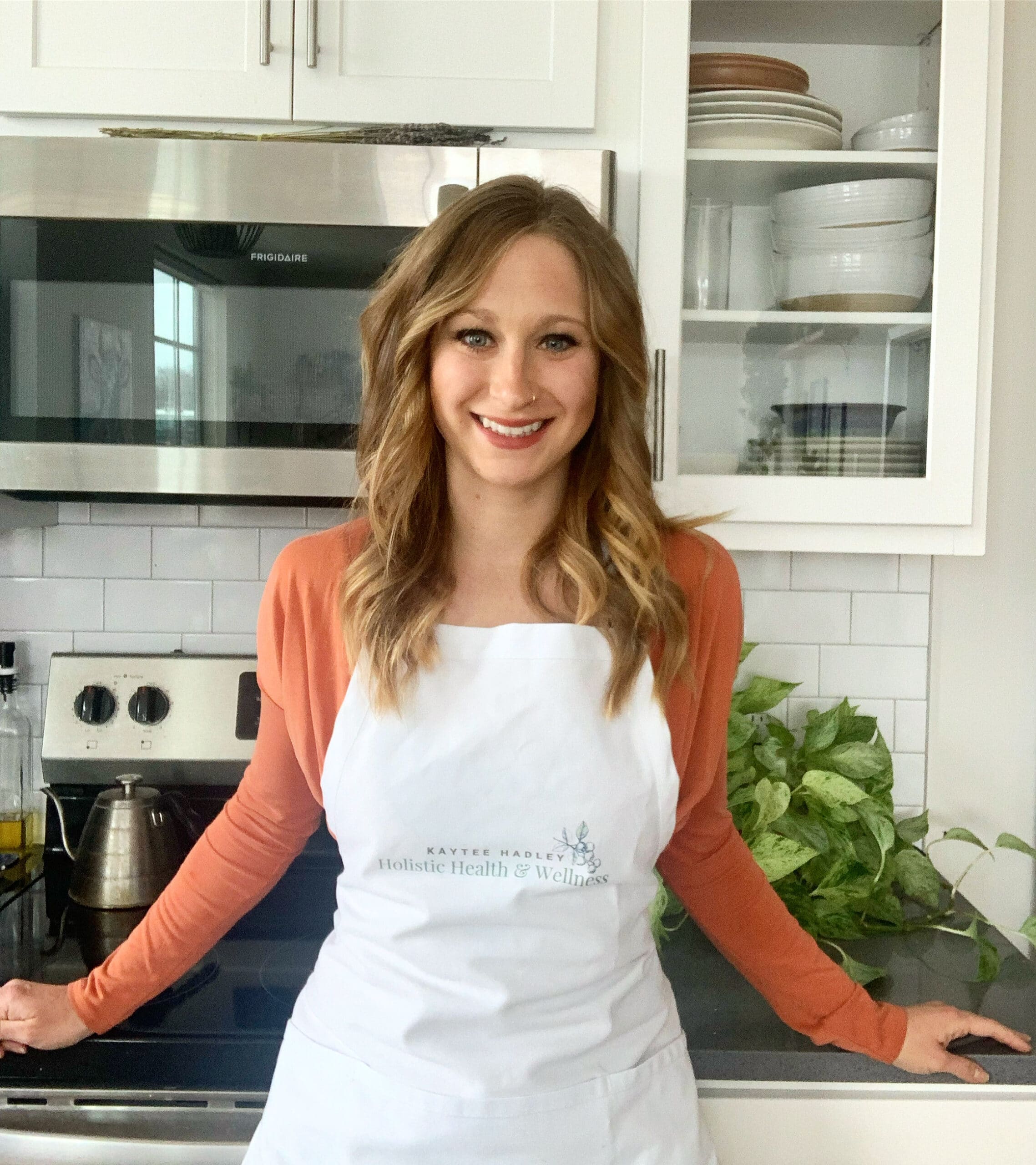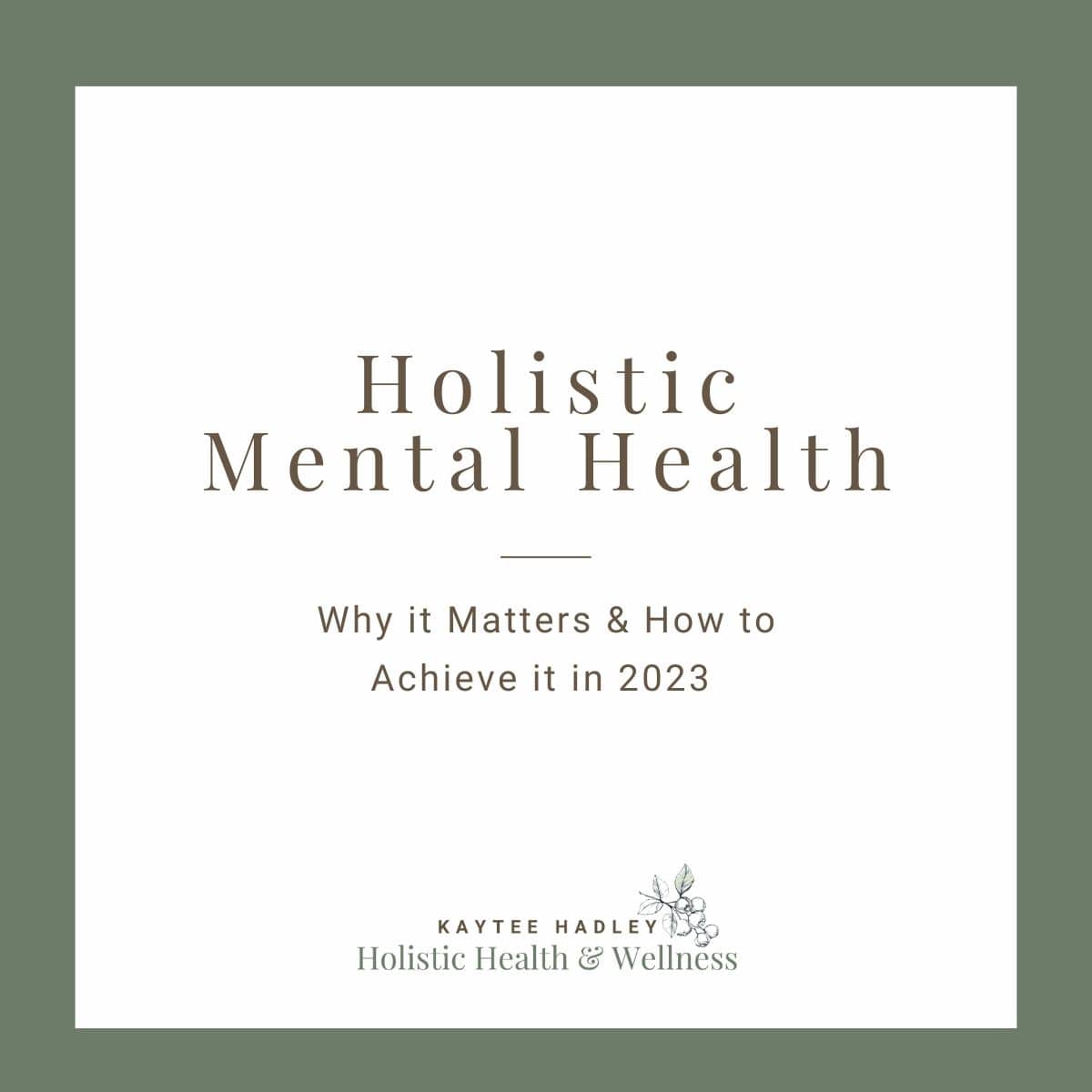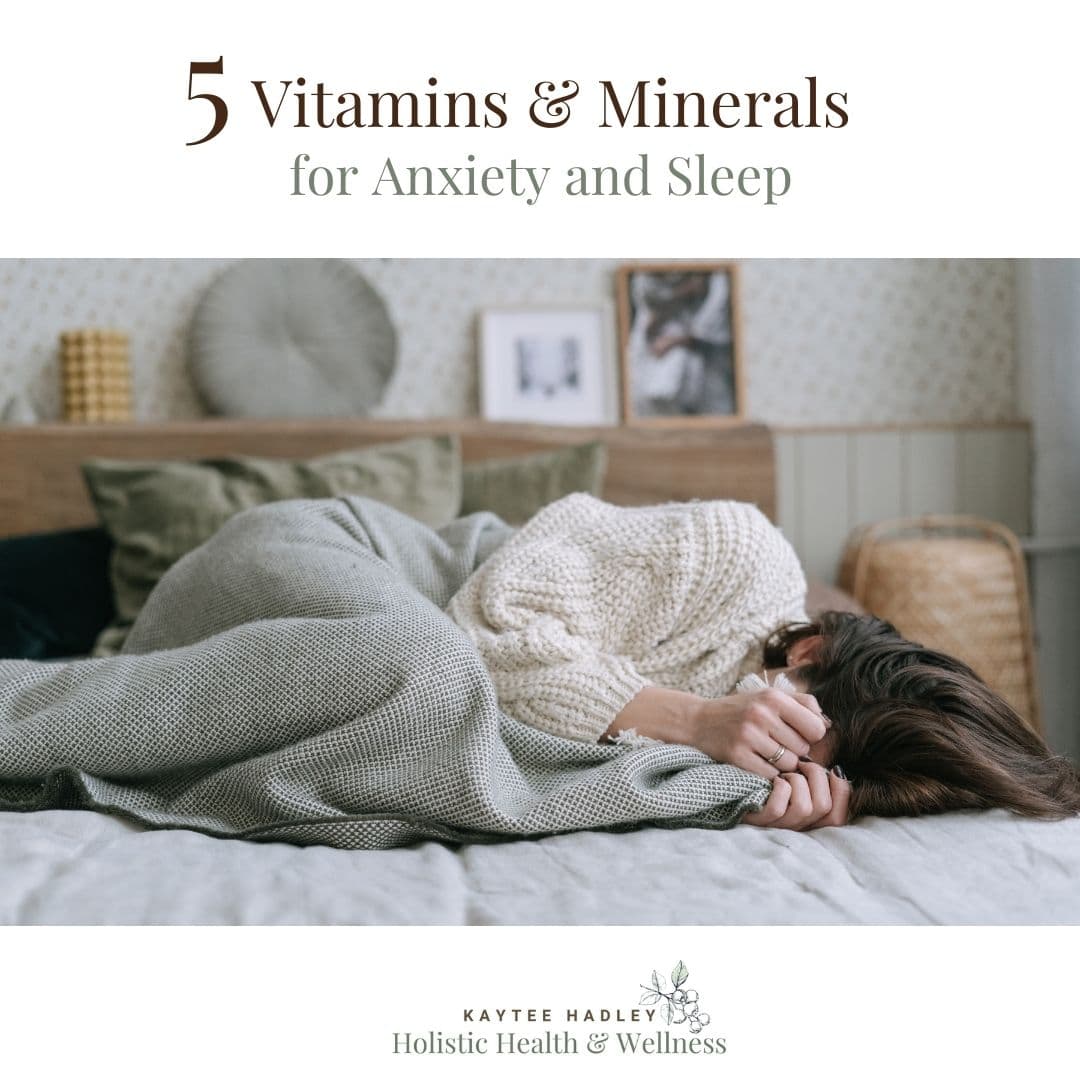This article is co-authored by Shauna Davis, a former intern at Holistic Health and Wellness.
Anxiety can be suffocating and debilitating, making you feel as though your symptoms are in control, and preventing you from living your best life.
While medication and psychotherapy are beneficial treatment options for many people with anxiety, there is more that can be done to reduce symptoms and address the underlying causes.
Did you know that nutrition impacts mental health and anxiety? What about movement?
It’s true! In fact, there are six lifestyle pillars that have the potential to improve or worsen anxiety.
By understanding how these pillars affect your mental health, you will be more equipped to make choices everyday that can improve your anxiety.
So if you’re looking for a more empowering and holistic approach for anxiety, read on!
Want to save this article to reference later? Click here to get a PDF copy delivered to your inbox.
Anxiety
Table of Contents
Anxiety is a specified mental disorder that can cause feelings of stress, nervousness, fear, and panic.
If you suffer from anxiety, doing simple daily tasks can become daunting and getting things done becomes a chore. It can even be difficult just to get through the day.
Traditional Approach
Anxiety is usually treated with various forms of psychotherapy (especially Cognitive Behavioral Therapy) and/or medication.
These treatments help to manage anxiety symptoms for many individuals, but they do not address how the body’s health may be contributing to or causing the anxiety to begin with.
What is a Holistic Approach?
A ‘holistic approach’ refers to viewing the person as a whole being and considers the physical, mental, social, emotional, and spiritual components of the individual.
The goal of a holistic approach is to create sustainable wellness by addressing the root cause of the problem instead of just managing symptoms for temporary relief.
Holistic Approach for Anxiety
For many years, mental health was viewed as separate from the rest of the body. However, more recent science has shown the importance of the mind-body connection for achieving optimal mental health.
A holistic approach to anxiety addresses the person’s whole body health (both physical and mental). This may include:
- Psychological support such as therapy
- Medical management perhaps through the use of medication (as advised by a doctor)
- Natural remedies such as acupuncture or energy healing
- Optimizing the body’s physical health (this guide’s focus)
As you can see, this holistic approach is not necessarily a replacement for the traditional treatment options, but works in complement to them.
This guide focuses on the fourth and final aspect of optimizing the body’s physical health because this component is not addressed in the traditional approach to anxiety.
Six Lifestyle Pillars
There are six lifestyle pillars that impact both physical and mental health, making anxiety better or worse.
As you read through these pillars, consider how implementing each of them into your life and how each one might be positively or negatively impacting your anxiety.
1. Personalized Nutrition
Personalized nutrition is the concept of creating a sustainable eating pattern that specifically works for you based on your health, lifestyle, likes, and dislikes.
Eating a well-balanced diet with specific foods and nutrients can improve gut health, decrease inflammation, and affect metabolism and neurotransmitters.
All these effects can positively influence anxiety, stress levels, and mood.
A Registered Dietitian can help you create a personalized nutrition plan and provide implementation support.
Here are a few general recommendations for eating to beat anxiety:
- Consume a variety of whole, plant foods
- Minimize the intake of processed foods and added sugars
- Include fermented and fibrous foods on a daily basis
2. Functional Fitness
Functional fitness involves a movement routine that allows you to do daily activities with ease. It should be beneficial and realistic for your body, goals, and lifestyle.
Simply moving your body several days a week can improve mood, quality of life, and cognitive performance, as well as decrease symptoms of depression and anxiety.
By participating in physical activity that you enjoy, you will reap the health benefits and are more likely to stick with it long-term.
A personal trainer, physical therapist, or another movement specialist can help you determine the best movement plan for you and your body.
Here are a few general recommendations for exercising to improve anxiety:
- Move your body in ways that increase your heart rate (even if that’s just a 10-minute walk)
- Include resistance training a few times each week
- Incorporate enjoyable types of movement
3. Optimized Circadian Rhythm
Circadian rhythm is the body’s sleep-wake cycle and is affected by many lifestyle aspects including timing of meals, light exposure, and exercise.
Anxiety can make it challenging to get good quality sleep. Then, the lack of sleep and disrupted circadian rhythm can make anxiety and other mood disturbances even worse. It’s a vicious cycle!
By optimizing the circadian rhythm, you can improve sleep quantity and quality at night, increase energy during the day, and reduce anxiety.
Try these foundational strategies:
- Go to bed and wake up within one hour of your usual time every day (even on weekends)
- Allow yourself at least 8-9 hours in bed every night
- Establish a calming bedtime routine to transition from wakefulness to rest
- Limit electronic use and stressful activities (such as work) before bed
4. Reduced Toxic Load
We are exposed to toxins every day from the environment, food, air, water, and even the products we use at home like skincare and makeup.
The body has natural detoxification organs and systems, but sometimes the exposure is more than the body can eliminate, causing a build-up.
This toxin load in the body can cause anxiety by affecting stress pathways, among other negative impacts.
To reduce the body’s toxic load, identify and reduce the exposure while supporting the body’s ability to eliminate the toxins.
Here are a few tips to get you started:
- Be mindful of heavy metal warnings (lead, mercury, aluminum)
- Be aware of the air pollution in areas you live and frequent
- Swap out dirty household products (such as cleaners, beauty products, cookware, and storage containers) for cleaner versions
5. Daily Mindfulness
Mindfulness, or the practice of being in the present moment, can significantly reduce anxiety and depression, promote self-esteem, assist in behavior change, increase awareness, and enhance emotional regulation.
Many different types of mindfulness practices exist, and they can be implemented individually or together, based on what is most beneficial and enjoyable for you.
These are a few mindfulness practices to try:
- Breathing exercises
- Guided imagery or visualization
- Meditation
- Yoga
6. Supportive Community
Having a robust support system from family, friends, and your healthcare team is essential for maintaining physical and mental health.
This support can offer resistance to stress, moderate genetic risk for depression and anxiety, alleviate stress, promote better mental health, enhance self-esteem, and encourage adherence to medical treatments.
To build your supportive community, consider:
- Volunteering for a cause you support
- Joining a gym or attending a class with a friend
- Connecting with healthcare providers who make you feel supported and heard
We Can Help!
At Holistic Health and Wellness, we work with you and your healthcare team to support you with a holistic approach for anxiety.
We value your opinion, insights, and intuitive knowledge regarding your health and needs to ensure that you are part of your healthcare team.
We support you in a holistic approach for anxiety by:
- Implementing the six lifestyle pillars through a functional medicine lens
- Correcting underlying physical imbalances
- Providing education on holistic wellness
- Giving you the tools you need to create lasting change
Schedule your free discovery call with functional medicine dietitian and health coach Kaytee Hadley to see if Holistic Health and Wellness’s approach is a good fit for you.
Key Takeaways
Anxiety can be suffocating and debilitating, making you feel as though your symptoms are in control, and preventing you from living your best life.
Symptoms of anxiety can affect you whether you have a diagnosed anxiety disorder or not.
The traditional approach to anxiety involves medication and/or psychotherapy.
A ‘holistic approach’ refers to viewing the person as a whole being, considering the physical, mental, social, emotional, and spiritual components of the individual.
The traditional treatment can be complemented by a holistic approach for anxiety which involves addressing the physical aspects that impact mental health, fostering the mind-body connection, and addressing the root cause through the six lifestyle pillars.
If you are interested in learning more about holistic mental health and how to achieve it, check out this blog post.
These six lifestyle pillars will improve your physical and mental health and can reduce symptoms of anxiety.
At Holistic Health and Wellness, we take a holistic approach for anxiety, fostering mind and body health, based on these six pillars.
Schedule your free discovery call with Kaytee to see if she is the right fit to support you in your health journey.
If you are interested in learning more about holistic mental health and how to achieve it, check out this blog post.
Did you find this article interesting and informative? Want to save it to reference later? You can download a PDF version here.
Disclaimer: This information is for educational purposes only and is not intended to diagnose or treat any disease. Please do not apply any of this information without first speaking with your doctor.

Kaytee Hadley MSc RDN IFMCP CPT is a functional medicine dietitian, holistic health coach, and certified personal trainer with a BA in Psychology, MSc in Nutrition, and Institute of Functional Medicine Certified Practitioner. She founded Holistic Health and Wellness to support folks with IBS and chronic GI symptoms who have been let down by the conventional care model to find and address the root causes of their symptoms naturally so they can be symptom free and thrive!


